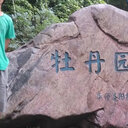Evaluation by survival analysis on effect of traditional Chinese medicine in treating children with respiratory syncytial viral pneumonia of phlegm-heat blocking Fei syndrome.
Keywords
Abstract
OBJECTIVE
To objectively evaluate the clinical effect of traditional Chinese medicine in treating children's respiratory syncytial viral pneumonia (RSVP) of phlegm-heat blocking Fei syndrome (PHBFS).
METHODS
A single-blinded multi-center, blocked, randomized and parallel-controlled method was adopted. The clinical study was carried out on 206 children with RSVP-PHBFS who were assigned to two groups, 108 in the test group treated through intravenous dripping of Qingkailing Injection () in combination of oral intake of Er'tong Qingfei Oral Liquid () and 98 in the control group with intravenous dripping of ribavirin injection in combination with oral intake of potassium guaiacol sulfonate oral liquid, all for 10 days. The clinical efficacy was evaluated and compared at the end of the trial from various aspects by three methods including comprehensive efficacy, post-treatment main symptoms score difference and survival analysis of the main symptoms.
RESULTS
After treatment, in the test group, 60 patients were cured, 36 markedly alleviated, and 12 improved. In the control group, 41 were cured, 38 markedly alleviated, 18 improved and 1 unchanged. Comparison on the comprehensive efficacy between the two groups shows a better efficacy in the test group (chi(2)=4.4527, P=0.0348). Scores of the main symptoms were lowered after treatment in both groups, the difference was 22.41+/-4.99 scores in the test group and 17.61+/-6.34 scores in the control group, being more significant in the former (t=-5.99, P<0.01). Survival analysis shows that there was significant difference between the two groups in the effect initiating time on such symptoms as fever, cough, copious sputum, shortness of breath, and rales, which was earlier in the test group (P<0.01 or P<0.05).
CONCLUSIONS
Evaluation of the efficacy of traditional Chinese medicine in treating children with RSVP-PHBFS by using the three methods jointly could better show the objectivity of the evaluation.



